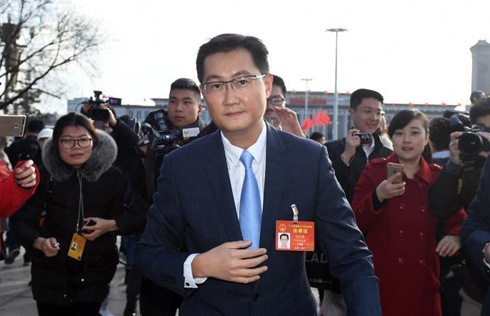Russian expert says China's Belt and Road Initiative counters anti-globalization
MOSCOW - While opposition to globalization is emerging in some Western countries, China firmly upholds the idea of openness and integration by pushing forward its Belt and Road Initiative, said a Russian analyst.
"The Belt and Road Initiative is directed against the narrow-minded protectionism, isolationism and attempts to sow discord between nations," Sergei Luzyanin, director of the Far Eastern Studies Institute under the Russian Academy of Sciences, told Xinhua in a recent interview.
China proposed the Belt and Road Initiative in 2013 in hope of creating a trade and infrastructure network connecting Asia with Europe and Africa along the ancient trade routes.
"The mega project is aimed exactly at integration, convergence and economic development," said Luzyanin, who has chosen this Chinese initiative as a latest study field.
According to him, the onshore and maritime routes run across areas of higher, medium and lower development levels, and participants can flexibly choose infrastructure overhaul, financial partnership or other forms of cooperation based on different local situations.
Official data showed that China has invested more than $50 billion in countries along the Belt and Road since 2013.
The initiative has won support from over 100 countries and many international organizations, with nearly 50 cooperative agreements signed between governments.
Luzyanin said the initiative will lead to a general economic improvement, especially in Central Asia and neighboring regions in the long term.
"If we had only the Western European-American option of integration and economic development in the 1990s, today there is a significant addition in the form of the Chinese model," said the specialist on China.
In May, more than 20 heads of state and government, over 50 leaders of international organizations, over 100 ministerial-level officials, as well as more than 1,200 delegates from various countries and regions are expected to participate in a Belt and Road forum for international cooperation in Beijing.
Luzyanin believes the prospects for this initiative are positive, because firstly the project is backed by abundant financial resources, including the Asian Infrastructure Investment Bank and the Silk Road Fund.
The second reason is that China has accumulated rich experience of economic development and reform over the past 30 years.
The third pillar is the Russian-Chinese strategic partnership with a common focus on the Greater Eurasia. Leaders of both countries have agreed to connect the Belt and Road Initiative with the Russia-led Eurasian Economic Union.
- ZTE reaches settlement with US authorities over export violation charges
- Protectionism, financial vulnerability put modest global growth at risk: OECD
- Growing foreign cooperation attests China's commitment to opening-up
- BRICS diplomats support China's free-trade advocacy
- China foreign trade still faces big challenges

















